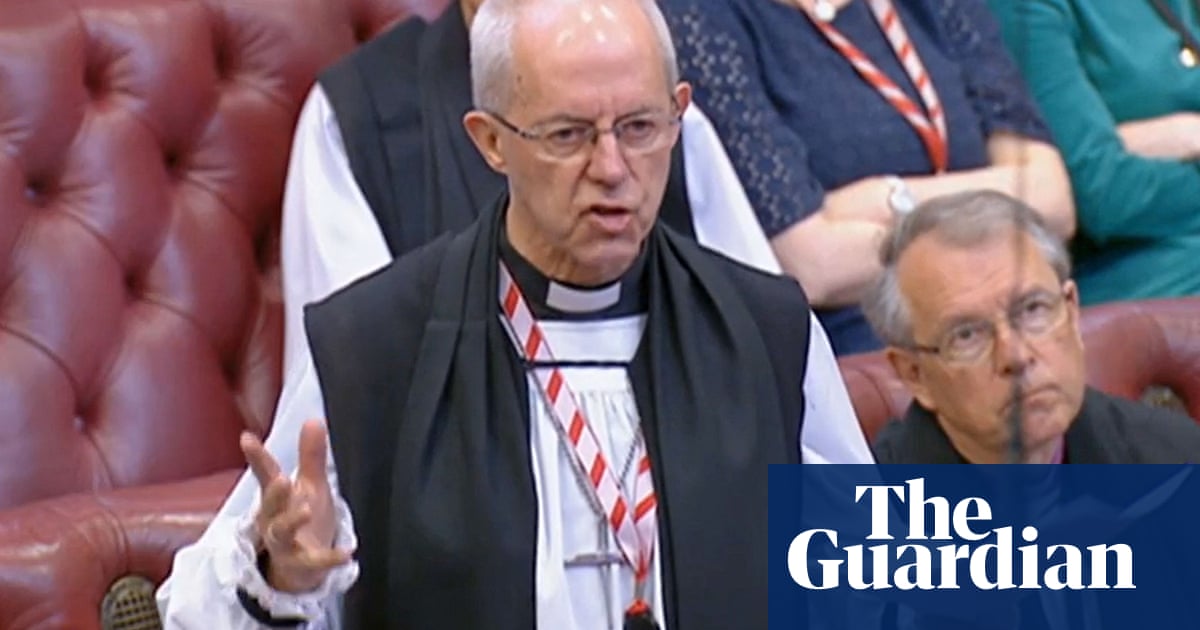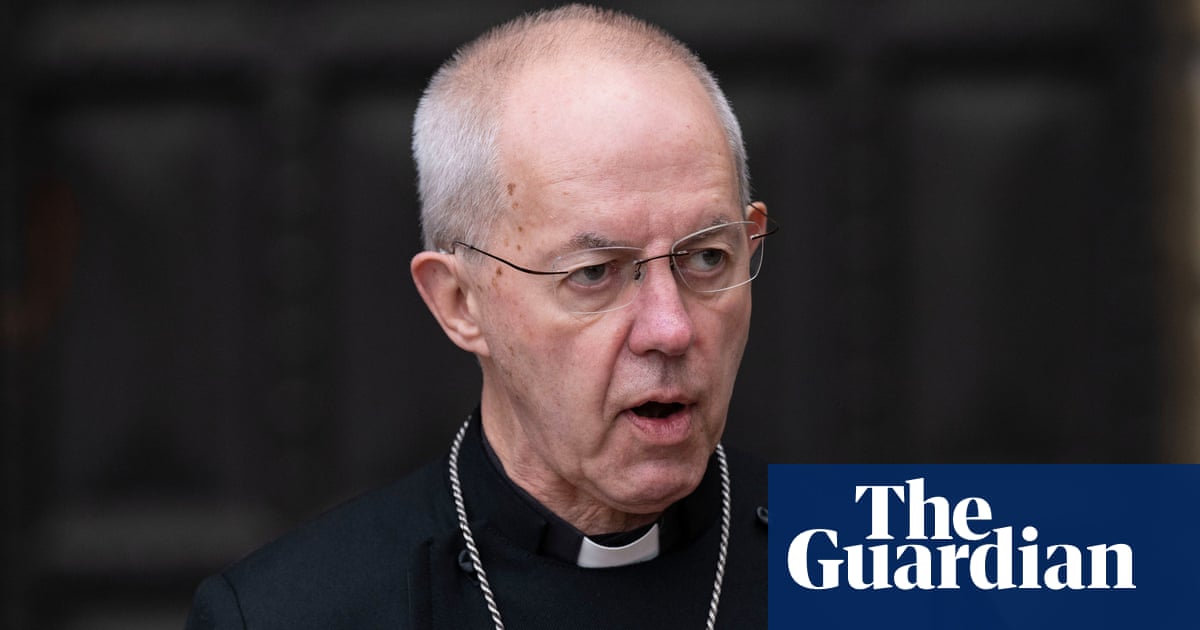
The archbishop of Canterbury has accused the government of cruelty in its asylum policy, and said that people-smuggling is as serious as slave trading in the 19th century.
Opening a debate in the House of Lords on Friday with a rebuke aimed at the home secretary, Suella Braverman, Justin Welby said the “harmful rhetoric” that those arriving in the UK are “invaders” must cease.
Politicians and the public must reject the “shrill narratives that all who come to us for help should be treated as liars, scroungers or less than fully human”, he said, and asylum policy must be based on the moral values of compassion and recognising human dignity. “A hostile environment is an immoral environment.”
Much of the public and political debate around immigration was driven by fear, Welby said. “Some of these fears are understandable. Many people are concerned that their communities and local services risk being overwhelmed.”
However, he continued: “When we fail to challenge the harmful rhetoric that refugees are the cause of this country’s evils, that they should be treated as problems, not people, [and as] invaders to be tackled and deterred, we deny the essential value and dignity of fellow human beings.”
Saying he had recently encountered someone who had been in the asylum system in the UK for 14 years, Welby said: “When migrants arrive here, our system is grossly wasteful in both human and financial terms. Control has become cruelty. Staggering inefficiencies by successive governments trap people in limbo, at incredible expense to the taxpayer, in the system for years, unable to build a life or to contribute to our society.”
The current system suffered from “chronic dysfunction”, he said. The UK “cannot take everyone”, he continued, but it needed a system that “balances effective, accurate and clear control with compassion and dignity, a system which is based in our history and proper moral responsibilities”.
A compassionate system “does not mean open borders, but a disposition of generosity and a readiness to welcome those whose need is genuine and which we are able to meet”, he added.
Welby repeated his view, expressed in a sermon last Easter, that the government’s policy of deporting people to Rwanda was immoral, and that it was “not a solution – it is a mistake. It will be a failure.”
He said the church was “often, and quite often rightly, criticised for talking about morality in isolation from the complexity of the real world. But when it comes to the treatment of refugees and those seeking asylum, it is the church both here and abroad which is doing so much of the heavy lifting, of meeting and supporting, of healing and advocacy, right around the world. We look into the faces, we listen to the voices, and we speak from that experience.”
The archbishop set out actions that the UK could take to improve its asylum system, including providing safe passage, expanding family reunification and effective triaging of arrivals.
Asylum seekers “should not just be allowed to work, but expected to work, except in limited circumstances where this would be inappropriate”.
The UK should take a lead with other countries to make people-smuggling an international crime, with an international force to tackle it. “It’s what we did in the 17th century against piracy, in the 19th century against slave trading. Surely, this is as serious.”
The archbishop of Canterbury hosts a House of Lords debate every year in December.












